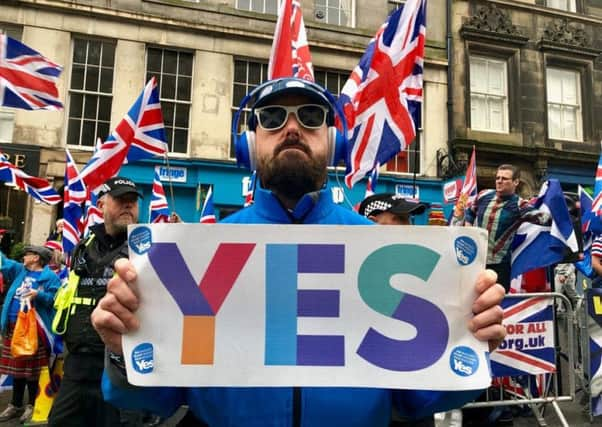Indy marchers may be pushing at a door that is already ajar - John Curtice


They are certainly a poor guide to public opinion. Even a march that brings many thousands of voters on to the streets will still represent no more than a small, potentially highly unrepresentative microcosm of the country.
An independence march is also unlikely to persuade many voters of the merits of leaving the UK. The debate on Scotland’s constitutional status has gone on too long for voters to be influenced by slogans on a banner.
Advertisement
Hide AdAdvertisement
Hide AdTrue, politicians will take note of the depth of feeling exhibited by the marchers. However, it is unlikely that yesterday’s event will do anything to speed the timing of a referendum. That hinges on the outcome of any early UK general election together, perhaps, with the outcome of the next Scottish election in 2021.
Yet this does not mean that yesterday’s march was a waste of time. It secured publicity and gave the leaders of the march an opportunity to express their view.
A potentially dry subject – when should a referendum be held – was brought to life with images and voices.
In short, yesterday’s march helped generate publicity for the pro-independence cause and kept the question of holding a ballot on the agenda. It also took place against a wider, more favourable backdrop.
There now appears to be an increase in support for holding a second independence referendum sooner rather than later.
For example, a YouGov poll last month found that, the numbers of those who think there should be a ballot in the next five years (45 per cent) has increased by nine points since the beginning of last year and now matches the proportion who are opposed (44 per cent).
Moreover, recent polls of how people would vote in another ballot have shown a modest but potentially significant increase in support for independence, which now stands at just under half the vote (49 per cent).
Yesterday’s marchers may be pushing at a door that has already come somewhat ajar.
John Curtice is Professor of Politics at the University of Strathclyde